Breaking Barriers:
Empowering First-Generation College Students to Take a Life-Altering Step
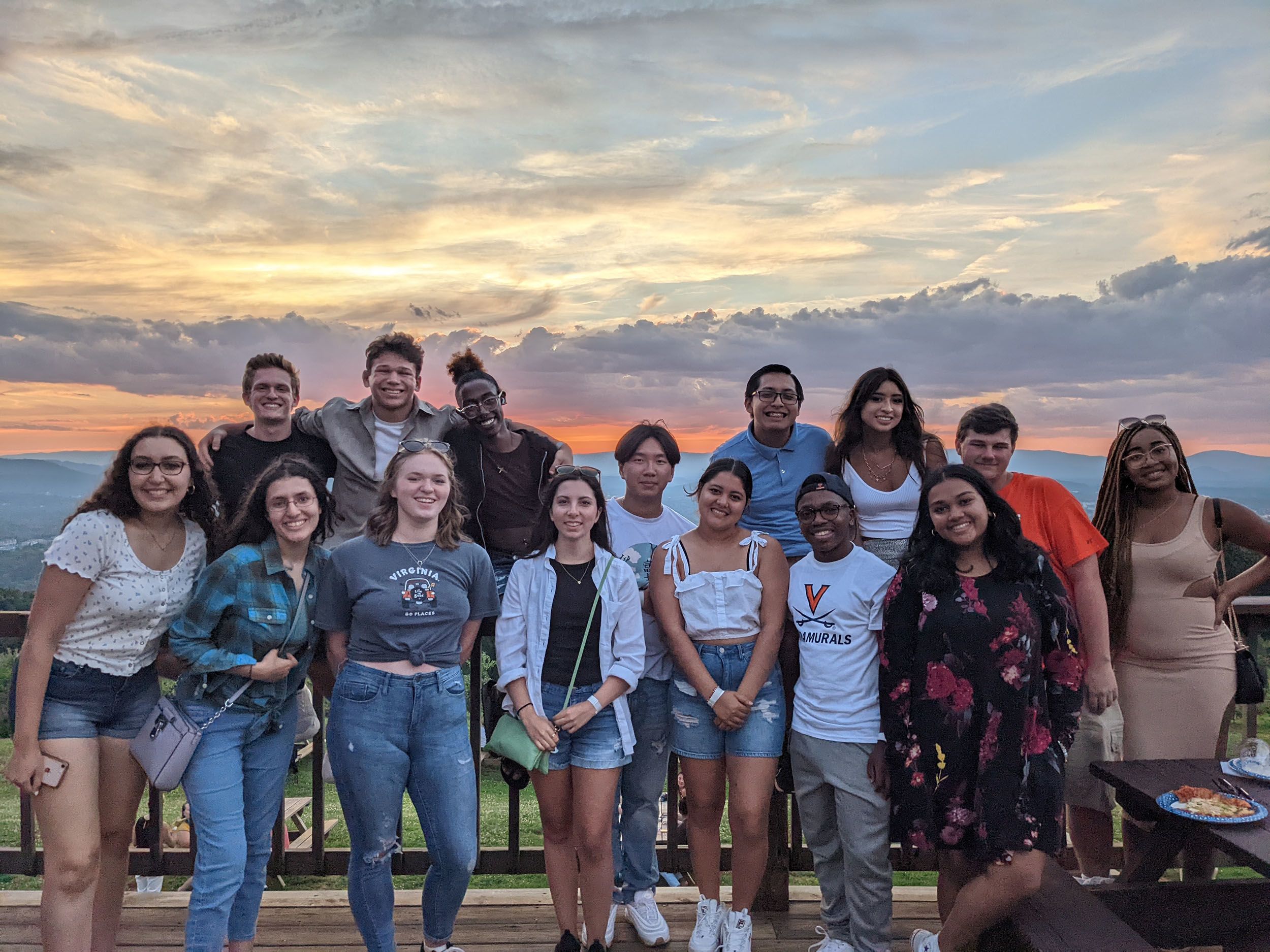
Some say the hardest part about college today is figuring out how to pay for it. A recent New York Times article likened the process of saving and paying for a four-year degree to an endurance test, calling it “a forced march on a 50-year parade.” But all too often the challenges faced by college students do not end with the completion of their FAFSA. For many, adjusting to life on campus can prove equally daunting.
Not so for Katherine Flores, a second-year student at the University of Virginia who also happens to be the first person in her family to attend college. For her, many of the headaches that come with navigating the world of higher education, particularly as a first-generation college student, are manageable.
At age 12, Flores and her mother fled their home in El Salvador. They ended up in Virginia, where Flores coped with the pressures of adapting to a new culture and learning to speak a foreign language. A quick study with a natural interest in subjects ranging from biology to the arts, Flores began distinguishing herself inside the classroom as she became more fluent in English. In high school, not only did she excel in AP and honors classes, but she also established herself as a formidable leader in her school and community, tutoring peers in English, spearheading student-led cultural festivals, and working part-time to help support her family.
“As much as I liked school and seemed to be really good at it, I never even thought about going to college,” Flores said. “But my high school counselor saw something in me that I didn’t see in myself and nominated me for a full scholarship at UVA.”
Little did Flores know that her counselor’s vote of confidence would not only open the door for her to attend one of the top public institutions in the country, but it would also provide her with the financial means to do so, as well as access to a network of individuals who would do everything within their power to ensure her transition to college was as seamless as possible.
Tucked away in a quiet corner of Charlottesville, Virginia, an otherwise bustling college town and home to the University of Virginia, sits the Jefferson Scholars Foundation, an independent organization whose 32,700 square-foot facility serves as sort of an academic oasis.
Over more than four decades, the Jefferson Scholars Foundation has earned a reputation for attracting to UVA some of the world’s most promising leaders, scholars, and citizens. The Foundation has accomplished this most notably through the undergraduate scholarship for which it is named.
The Jefferson Scholarship, which covers the entire cost of attendance for four years at UVA plus several supplemental enrichment experiences (like travel abroad), is one of the most highly competitive merit scholarships in the country. And with good reason. Those granted the prestigious award receive between $185,500 and $346,500, depending mostly on their residency.
Flores’s academic record certainly would have made her a strong contender for the Jefferson Scholarship, but her high school counselor opted instead to nominate her for a new scholarship recently launched by the Foundation.
In 2019, as part of a $100 million commitment from UVA alumnus David Walentas, the Foundation announced that it would expand its efforts by establishing a second merit scholarship—one that would provide the same benefits as the Jefferson Scholarship but would aim to identify and attract exceptionally talented first-generation college-bound students.
Walentas, like Flores, was the first in his family to pursue a college degree. The visionary real estate developer made the gift to encourage high school graduates to take the same life-altering step.
Flores is among 12 high school seniors selected in 2022 to join the inaugural class of Walentas Scholars at UVA.
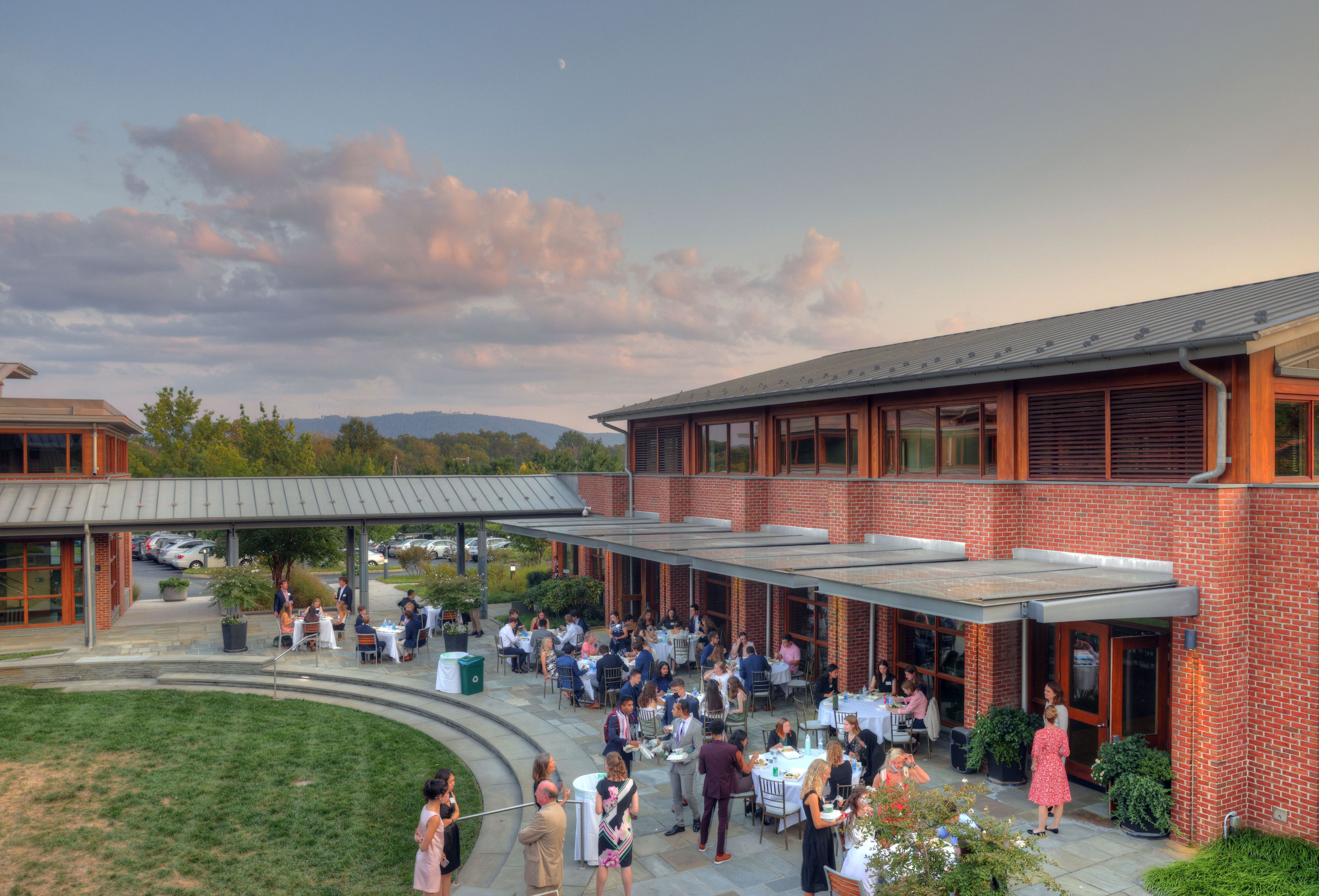
Beyond ample financial support, a few things set apart the Jefferson and Walentas Scholarships from other full-ride scholarships. Perhaps most notably is the unique organization that administers them.
As the largest foundation dedicated to merit awards and programming at any public institution in the country, the Jefferson Scholars Foundation does not simply attract and support talented undergraduate students. It also supports exceptional graduate students through its Jefferson Fellowships and helps UVA hire leading-edge researchers and classroom teachers through its Distinguished Professorship Program.
What exactly does that mean for Jefferson and Walentas Scholars?
“It means Jefferson and Walentas Scholars receive more than a check. They are invited to be part of a robust community that is truly reflective of a broader university ecosystem,” said Sarah Elaine Hart, director of the Walentas Scholars Program.
Hart, a Jefferson Scholar alumna, understands as well as anyone the value of a supportive community. Prior to joining the Foundation, she spent nearly a decade as a high school counselor and gained valuable experience working with students and supporting their needs as they prepare for college.
“Some of the obstacles first-generation students face might seem small,” she said, “like being less familiar with the vernacular necessary for navigating day-to-day life on campus. But other obstacles can have serious consequences when it comes to the college application process or to acclimating to campus life.”
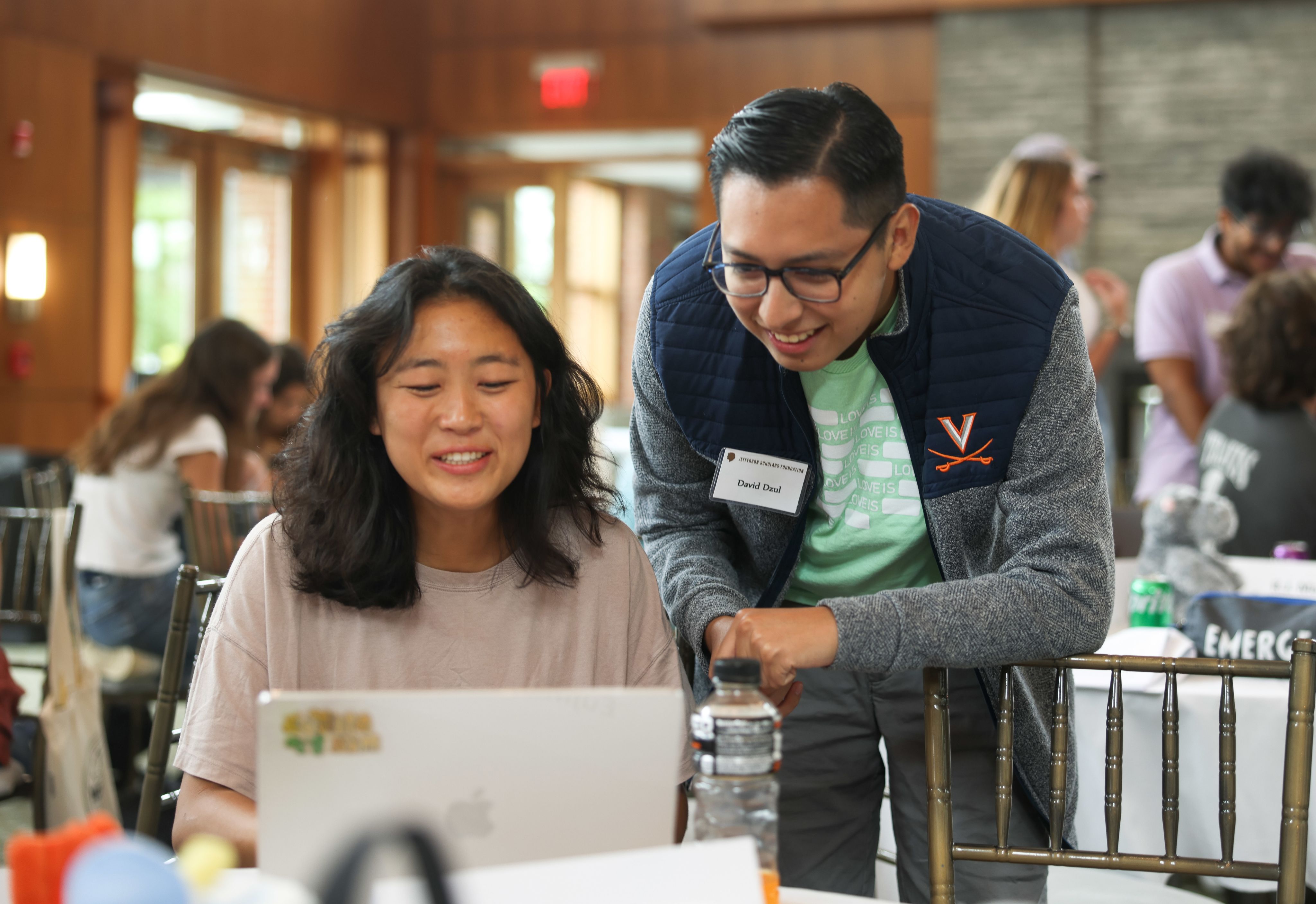
That’s why Hart and her colleagues developed a new slate of enrichment programs designed specifically to help Walentas Scholars form close ties as a cohort and transition smoothly into college. Prior to UVA’s summer orientation and throughout the first few weeks of school, the Foundation hosts a summit and a college transition workshop to facilitate scholars getting to know each other and to prepare them for their first semester in college.
Chad Prather, a Jefferson Scholar alumnus who, like Hart, has spent his career in education, recalls benefiting from what he describes as the Foundation’s “community capital.”
“I felt known and safeguarded by the Foundation, which is to say, there was a network of people who took a unique interest in my passions and empowered me,” he said. “I just don’t know that institutions as large as universities have the capacity to reach people on that sort of intimate level.”
Today, Prather returns the favor by empowering current Walentas and Jefferson Scholars. Every year he leads a session at the Institute for Leadership and Citizenship, one of the Foundation’s most popular and longstanding enrichment programs. This multi-day program is designed to give scholars an opportunity to reflect, both as individuals and as a cohort, on ways they can maximize their potential as leaders and citizens within the UVA community. Prather’s session, which he calls “Toward and For Others,” is about finding purpose and meaning in servant-leadership.
“There are things we all want to accomplish—grades we want to get, scores we want to attain, and positions we want to hold,” said Prather. “All of those things are ambitious pursuits. I think what the Foundation strives for though is how do we take that ambition and build aspiration? How do we get students to begin thinking about impact?”
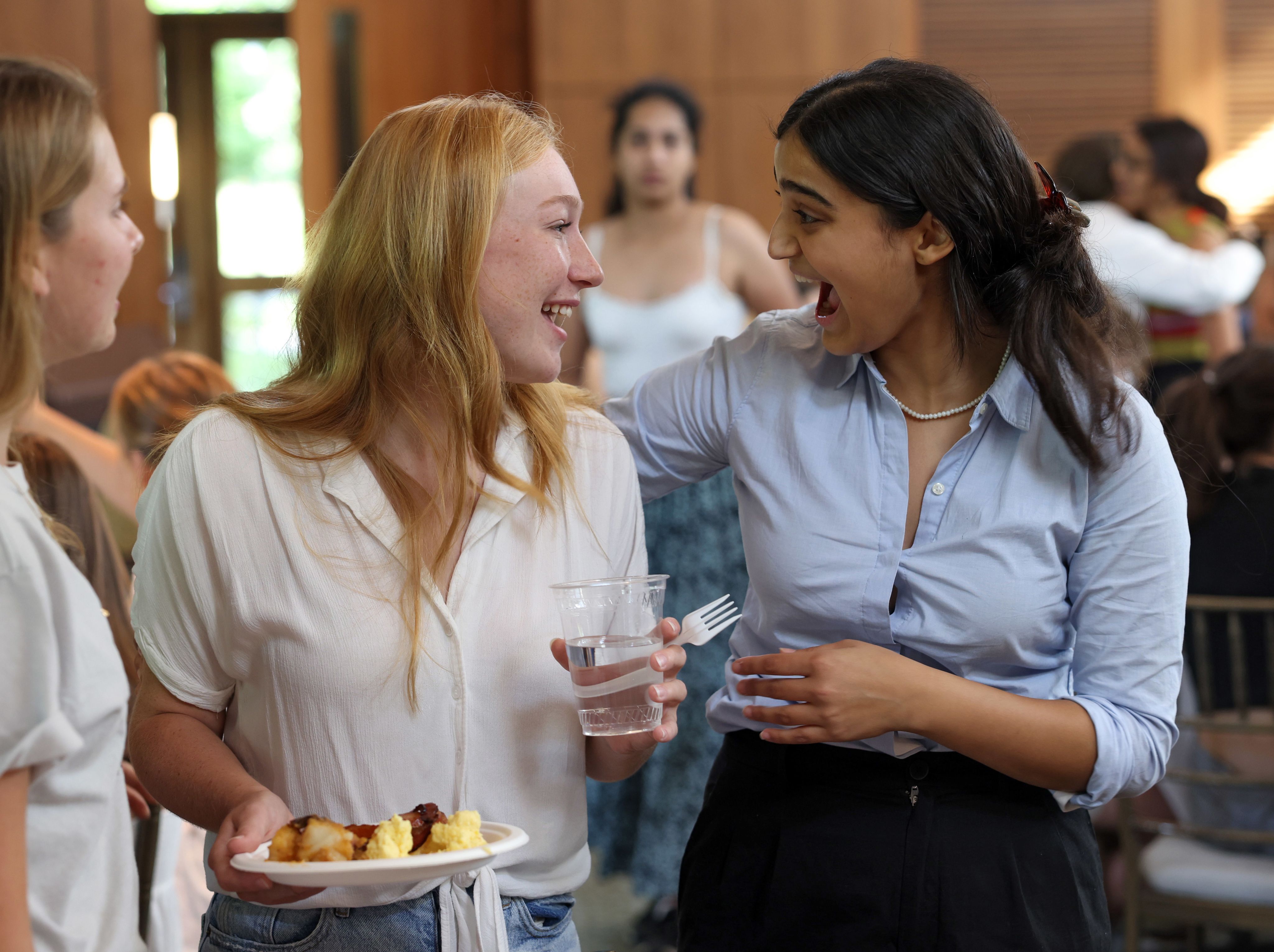
A separately incorporated 501(c)3 organization, the Foundation is governed by its own self-perpetuating board of directors. As such, independence is one of its unique and defining features, allowing it, among other things, to devise a selection process that entrusts UVA alumni with the responsibility of selecting the recipients of its scholarships.
“Most scholarship programs leave that responsibility in the hands of admissions offices, without any alumni input,” said Jimmy Wright, president of the Foundation, “but who better to determine who will succeed at the University than those who themselves have done just that?”
Kristin O’Donoghue, a current Jefferson Scholar who will graduate this spring, recalls how useful it was to meet UVA alumni throughout the selection process.
“I got to meet so many alumni from all different backgrounds and start building my network before I even started school,” she said. “The questions they asked in the interviews were so thoughtful too. It wasn’t about my GPA or SAT score or how well I did in class. They wanted to know what motivates me, why I invest so much of my time and energy into certain activities, and how I planned to use my talents to make UVA a better place.”
From an investment standpoint, independence has meant the Foundation’s board has had the freedom to treat gifts it receives, no matter the size, as gifts to its endowment—and it has invested them accordingly.
Wright, who has led the Foundation since 1984, says, “This conservative fiscal approach certainly made the first few years we were in operation a bit of a challenge, but over time, it has proven to be a very wise financial decision. We know we will have the resources we need to support our scholars well into the future.”
Wright believes the strong track record of the Jefferson Scholarship over four decades has instilled confidence in many of the Foundation’s benefactors, inspiring them to join David Walentas and contribute to the Walentas Scholars Program. “In some cases, our benefactors approached us, not the other way around, expressing a desire to help,” said Wright.
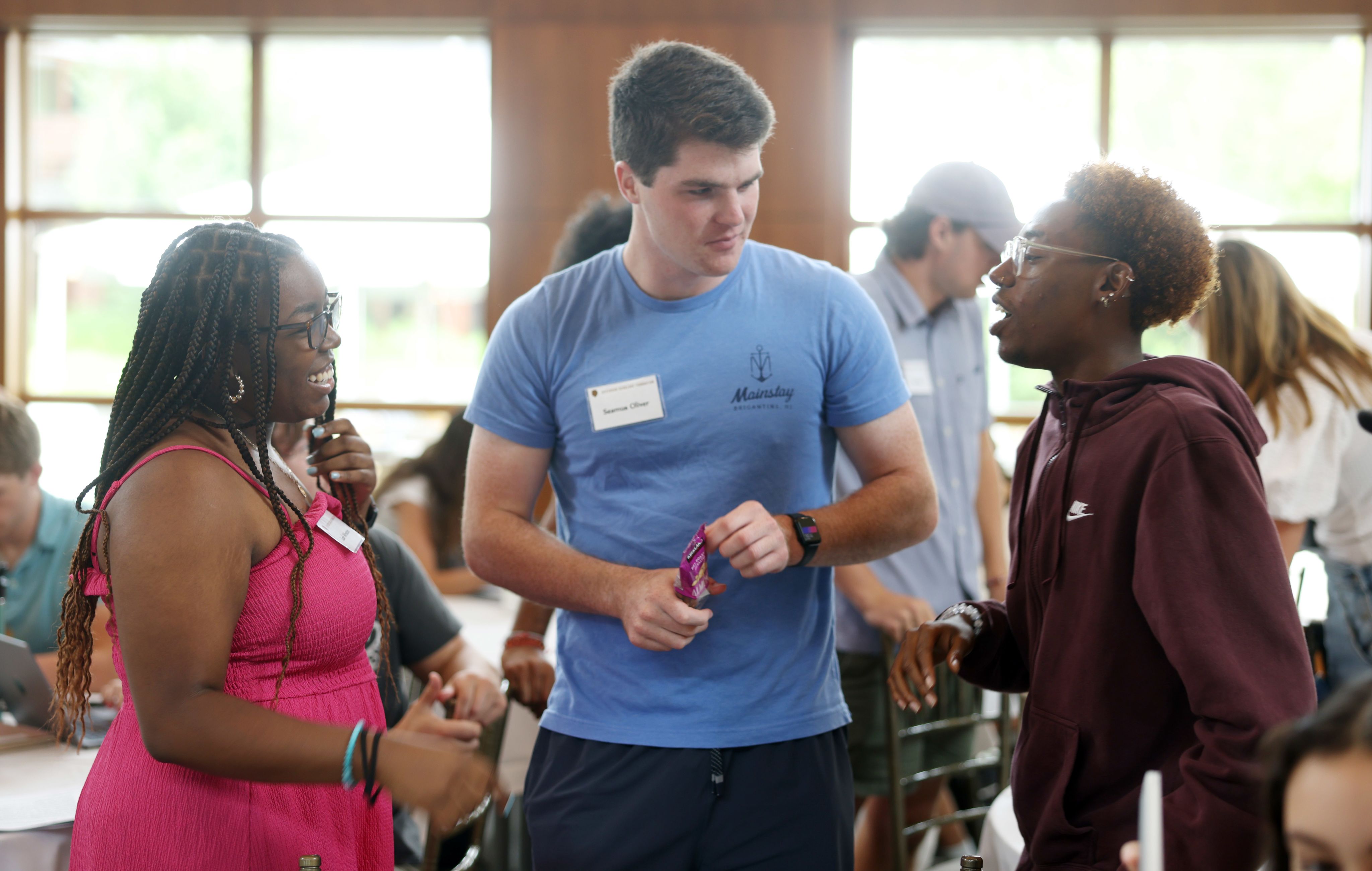
Their support will allow the Foundation to expand the footprint of the Walentas Scholarship in the coming years, accepting nominations in areas like Baltimore, Boston, Chicago, Los Angeles, St. Louis, and Washington, D.C. In time, and with continued fundraising success, the Foundation hopes to support as many as 25 Walentas Scholars per cohort, drawn from all corners of the country.
What may not be as widely known is the fact that the impact of the Foundation’s work extends beyond the scholarship recipients themselves. Each year approximately 10 percent of UVA’s entering class are Jefferson and Walentas Scholarship nominees, students who did not receive full scholarships but who were encouraged by the UVA alumni who interviewed them to come to Charlottesville.
UVA is seeing the ripple effect of the Foundation’s efforts, particularly in the number of first-generation students that make up each class. Over 17 percent of the class of 2027, which includes the second cohort of Walentas Scholars, are first-generation college students—the largest percentage since the University began tracking the data point.
“There is simply no more powerful recruiting vehicle anywhere,” said Wright.
For Hart, she will continue to focus on removing obstacles from the paths of first-generation college-bound students and giving them enough runway to excel.
“It’s exhilarating to think that the Foundation can support a first-generation student at UVA and that, 50 years from now, their children and grandchildren will continue to reap the benefits of the fact they were able to pursue a college education.”
This content was paid for and created by Jefferson Scholars Foundation. The editorial staff of The Chronicle had no role in its preparation. Find out more about paid content.



